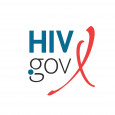On the National Martin Luther King, Jr. Day of Service, HIV.gov spoke with Ada Stewart, MD, about the annual recognition of National Black HIV/AIDS Awareness Day (NBHAAD), on February 7, which is during Black History Month. She shared her thoughts about this year’s NBHAAD theme, the importance of HIV education, and improving efforts targeted toward ending the HIV epidemic in Black communities.
Watch an inspirational video featuring Dr. Stewart and read our previous blog about her to learn more.
Reflected in this year’s theme, “Engage, Educate, Empower: Uniting to End HIV/AIDS in Black Communities,” NBHAAD provides an opportunity to increase HIV awareness, education, testing, treatment, and community involvement in Black communities. Dr. Stewart shared that despite the progress made nationally to end the HIV epidemic, continued education in Black communities is vital. “We still have a long way to go. We must continue to educate our Black communities on eliminating HIV stigma and ensuring awareness regarding the importance of HIV treatment, as well as prevention. We need to change the narrative, in that HIV is no longer a death sentence due to the highly effective medications that we have available now,” she shared. Additionally, she highlighted the role of clinicians in increasing HIV awareness. She stated that, “as clinicians, we must remove barriers that our patients face. We must create a safe and comfortable space to discuss HIV testing, treatment, and prevention tools, such as PrEP. Educating the public at the community level is equally important.” She noted that this approach will help better focus efforts within Black communities, particularly among Black women, including “both trans-women and our cis-women sisters,” she stated.
HIV Among Black Women
Per the CDC’s 2023 HIV Surveillance Report, the differences in HIV diagnoses by race/ethnicity are staggering. The report, which may be viewed here, notes that while Black females aged 13 years and older made up 13% of the female population in 2021, they accounted for 54% of HIV diagnoses among women. Drivers such as racism, HIV stigma, discrimination, and barriers to accessing health care continue to impact this disparity. Thus, the National HIV/AIDS Strategy designates Black women as one of the priority populations in need of better-focused HIV efforts and resources.
Reflecting again on the NBHAAD theme, Dr. Stewart addressed the importance of empowering Black women to better care for themselves and engaging them in ways that make them comfortable discussing their needs. She shared, “Additionally, we need to ensure that HIV prevention services, such as PrEP, are offered to Black women in every place that they go to for care. We must create safe spaces for them and discuss any barriers they may be facing so that we, as clinicians/providers, can engage them in every step of their healthcare journey.”
More About Dr. Stewart
Dr. Ada Stewart, Family Physician, serves as the Lead Provider and HIV Specialist at Waverly Family Practice in Columbia, SC. Her medical credentials are through the American Academy of HIV Medicine. In addition to providing primary care, she offers GYN, gender-affirming care, and HIV services. She is the past President of the American Academy of Family Physicians and a former member of the Presidential Advisory Council on HIV/AIDS (PACHA). She is also a Colonel in the U.S. Army Reserve. Dr. Stewart often shares that “God put me here for service, and I’m so honored and blessed to be of service to both the community and our country!”








Comments
Comments